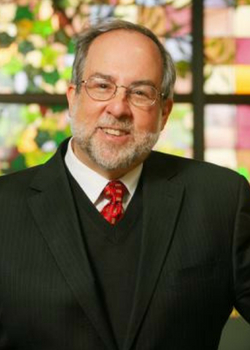"As Gregor Samsa awoke one morning from uneasy dreams, he found himself transformed in his bed into a gigantic insect. He was lying on his hard, as it were armor-plated, back and when he lifted his head a little he could see his dome-like brown belly divided into stiff arched segments on top of which the bed-quilt could hardly keep in position and was about to slide off completely. His numerous legs, which were pitifully thin compared to the rest of his bulk, waved helplessly before his eyes. "'What has happened to me?' he thought. But it was no dream."
Thus begins Franz Kafka's famous tale, "Metamorphosis." But as we read through the story, it becomes increasingly apparent that Gregor Samsa wasn't transformed. He always was a bug. Encased in a narrow and rigid exoskeleton of familial expectations, social class propriety and professional demands, he has no room to grow and no power to move. He is a small man with small dreams and small satisfactions. All that is heroic and noble within him has died. Gregor Samsa is Franz Kaftka's startling portrait of a man who awakens one morning to the truth that he has grown satisfied too soon with too little. Content with an ordinary, mediocre, useless life, and bereft of the capacity to change.
What is it in the human soul that kills our dreams and turns us into bugs?
In this week's Torah reading, Moses sends 12 princes of the tribes of Israel -- to scout the land of Canaan. They all return describing a land indeed flowing with milk and honey. But ten of the princes demur: "The country that we traversed and scouted is one that devours its inhabitants. All the people that we saw in it are giants...and we looked like grasshoppers to ourselves and so we must have looked to them." Rallying the people Israel against Moses and Aaron, they cry, "Why is the Lord taking us to that land to fall by the sword?....Let us return to Egypt!" (Numbers 13:32ff)
Offered everything they've dreamed of for generations -- the Promised Land -- and backed by the power of God who smashed the Egyptians, led them across the Sea and made Sinai quake, they are yet afraid: Afraid to take possession of what has been promised them; afraid to move forward and become free people; afraid to take responsibility for their destiny; afraid of a tomorrow that carries no guarantees; afraid of the new; afraid to risk an open and uncertain future. Without absolute security, they are turned into bugs. "Let us return to Egypt!" Only slavery offers absolute security, absolute certainty. The one advantage of slavery - every tomorrow is exactly like yesterday.
Fear is one part of the problem. But often, it is much more prosaic. The most common word for sin in the Jewish tradition is the Hebrew, het. The word comes from archery. Het literally means missing the mark, missing the target. This is not a failure of intent, nor a failure of fundamental morality. Het is a failure of vision. It is the problem of distraction.
I know the good. I know what kind of person I would be. I know what kind of world I want for my children, but I fail because I get distracted. The urgent and the pressing pull at me. Distraction is a spiritual problem born of a life of busy-ness: So busy with work and with family; so cluttered with activities, obligations, commitments; so obsessed with getting somewhere, I forget where I'm going. So consumed with becoming someone, I forget who I am. Until I wake up one morning to discover it's too late. In the Torah's image, the people Israel wander in the wilderness for forty years -- a lifetime -- until they can figure out who they are and where they're going. Like bugs, they meander aimlessly.
At the close of this week's portion, we are commanded to tie fringes to the corners of our clothing, "Lo taturu, Don't be led astray!.. Look at it and recall...Thus shall you be reminded to observe all my commandments and to be holy to your God." (Numbers 15:39ff) You are no bug. You carry the dreams of God. And before you lies God's Promised Land.
Shabbat Shalom!

